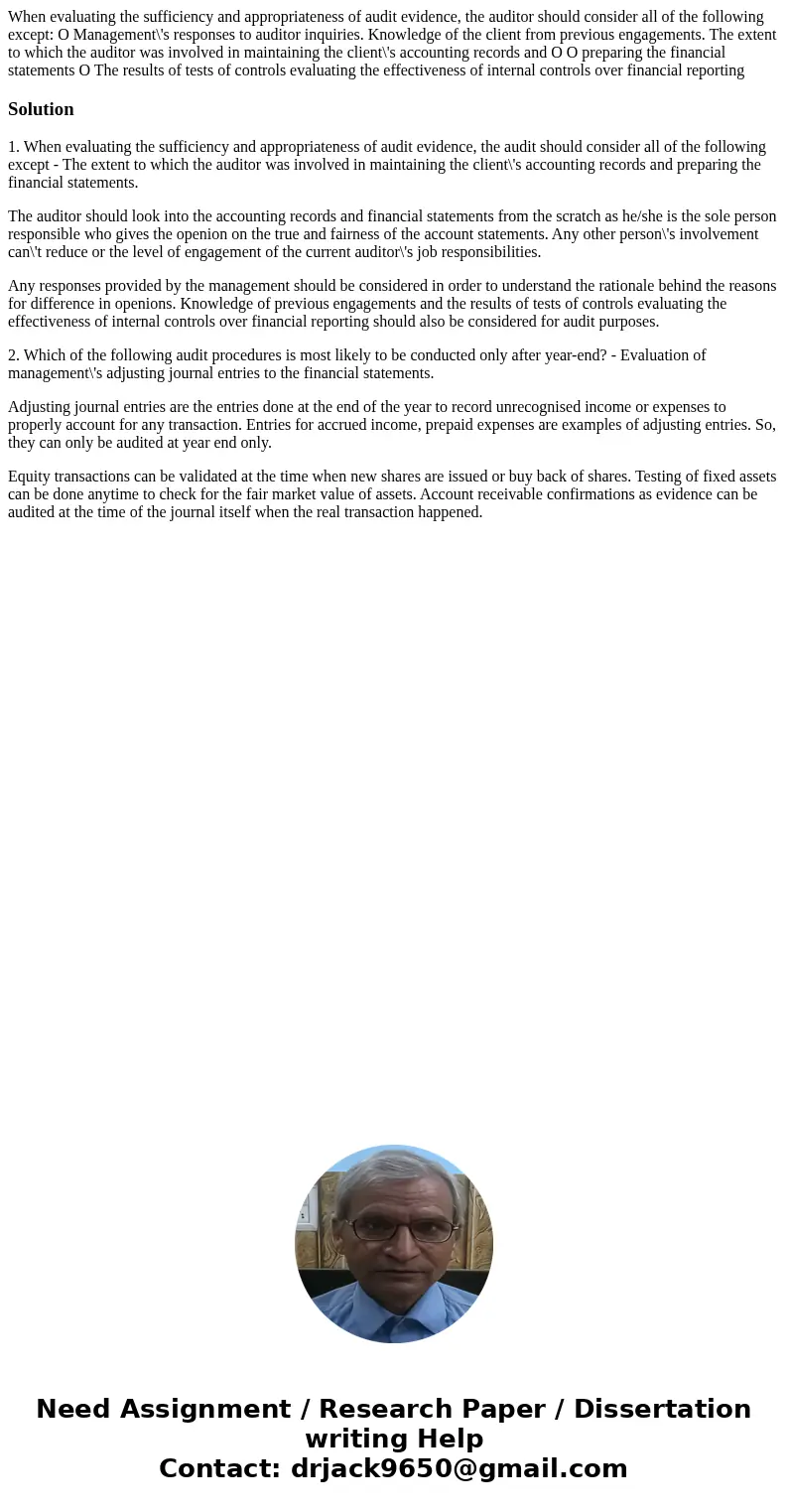When evaluating the sufficiency and appropriateness of audit
Solution
1. When evaluating the sufficiency and appropriateness of audit evidence, the audit should consider all of the following except - The extent to which the auditor was involved in maintaining the client\'s accounting records and preparing the financial statements.
The auditor should look into the accounting records and financial statements from the scratch as he/she is the sole person responsible who gives the openion on the true and fairness of the account statements. Any other person\'s involvement can\'t reduce or the level of engagement of the current auditor\'s job responsibilities.
Any responses provided by the management should be considered in order to understand the rationale behind the reasons for difference in openions. Knowledge of previous engagements and the results of tests of controls evaluating the effectiveness of internal controls over financial reporting should also be considered for audit purposes.
2. Which of the following audit procedures is most likely to be conducted only after year-end? - Evaluation of management\'s adjusting journal entries to the financial statements.
Adjusting journal entries are the entries done at the end of the year to record unrecognised income or expenses to properly account for any transaction. Entries for accrued income, prepaid expenses are examples of adjusting entries. So, they can only be audited at year end only.
Equity transactions can be validated at the time when new shares are issued or buy back of shares. Testing of fixed assets can be done anytime to check for the fair market value of assets. Account receivable confirmations as evidence can be audited at the time of the journal itself when the real transaction happened.

 Homework Sourse
Homework Sourse